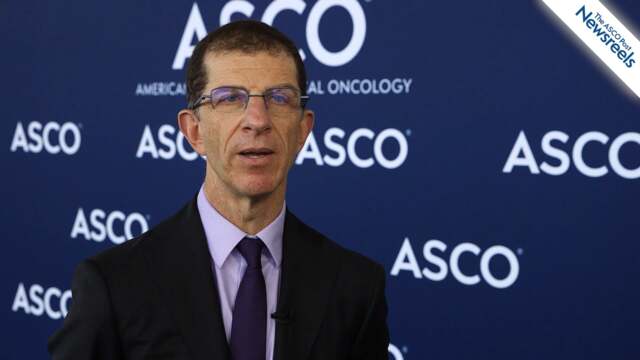Apostolia-Maria Tsimberidou, MD, PhD, on Precision Medicine: Results From the IMPACT Study
2018 ASCO Annual Meeting
Apostolia-Maria Tsimberidou, MD, PhD, of The University of Texas MD Anderson Cancer Center, discusses findings on clinical outcomes, including long-term survival, according to the pathway targeted and treatment period (Abstract LBA2553).
Laurie Helen Sehn, MD, MPH, of the British Columbia Cancer Centre for Lymphoid Cancer, discusses phase II study findings on polatuzumab vedotin with bendamustine and rituximab in relapsed or refractory follicular lymphoma and diffuse large B-cell lymphoma (Abstract 7507).
Danny Rischin, MD, of Peter MacCallum Cancer Centre, discusses phase II study findings on cemiplimab, a human monoclonal anti–PD-1 antibody, in patients with metastatic cutaneous squamous cell carcinoma (Abstract 9519).
Toni K. Choueiri, MD, of Dana-Farber Cancer Institute, and Laurence Albiges, MD, PhD, of Gustave Roussy, discuss two treatment studies: one testing pegilodecakin with nivolumab or pembrolizumab and the other evaluating an oral CXCR4 inhibitor in combination with axitinib (Abstracts 4509 & 4510).
Helena Margaret Earl, MBBS, PhD, of the University of Cambridge, discusses phase III study findings on 6 vs 12 months of adjuvant trastuzumab in patients with HER2-positive early breast cancer (Abstract 506).
Martee L. Hensley, MD, of Memorial Sloan Kettering Cancer Center, discusses phase III study findings on adjuvant gemcitabine plus docetaxel followed by doxorubicin vs observation for uterus-limited, high-grade leiomyosarcoma (Abstract 5505).





